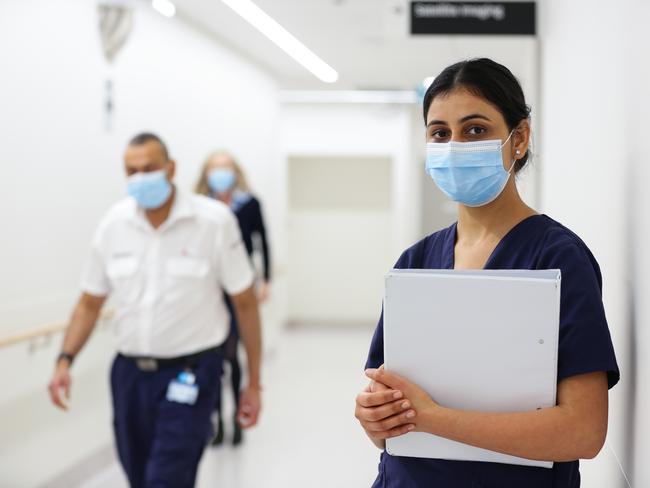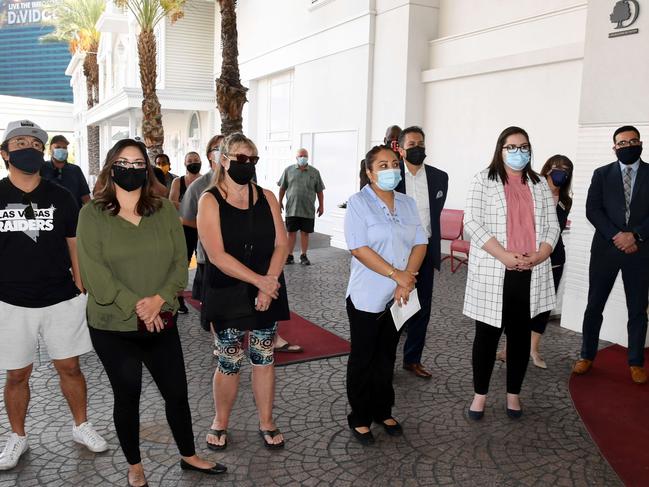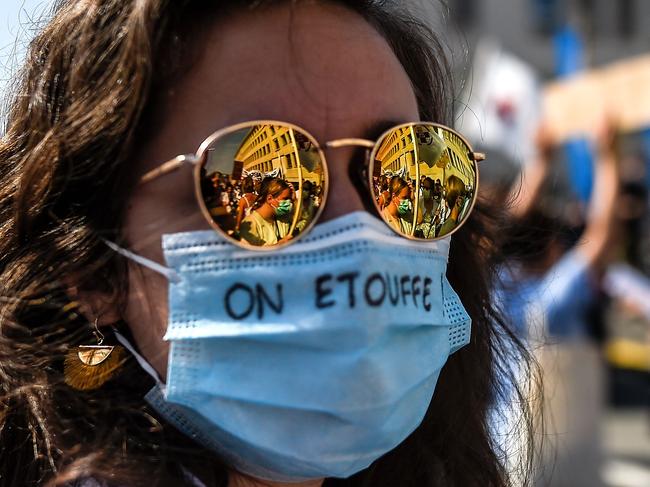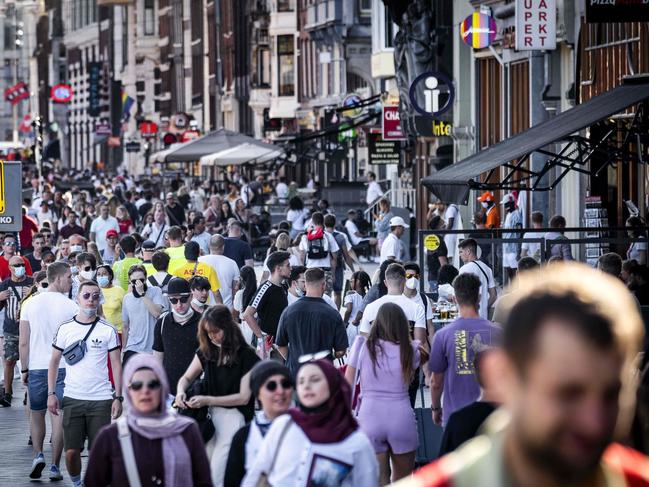Australia may have COVID-19 reinfections as patients get coronavirus twice globally
Getting coronavirus once may not provide you with immunity, as doctors explain how people are possibly getting COVID-19 more than once around the world.

Coronavirus
Don't miss out on the headlines from Coronavirus. Followed categories will be added to My News.
Exclusive: An infectious diseases expert has said it is possible Australia has seen COVID-19 patients reinfected more than once with the virus.
Fears are growing globally that COVID-19 reinfections are on the rise with experts weighing in on the probability of getting coronavirus twice as numbers start to soar again overseas.
Australian National University infectious diseases physician Dr Sanjaya Senanayake told News Corp Australia it is possible we have had cases of reinfection that we don’t know about.
“Is it possible that someone had a very mild infection the first time and then the second time they got a mild infection, got tested and it was positive? Yes, it is possible,” he said.
“But I’d hope in most cases you’d get a bit longer immunity than three or four months.
“In other coronaviruses you’d get a year to two years immunity,” he said.
Dr Senanayake said we need to learn to live with safety guards in place.
“Where there is uncertainty on whether every person that has had it can get it again I’d exercise on the side of caution and continue what we have been doing: physical distancing, good hygiene, wearing masks where it is required where we can’t safely physically distance,” he said.
He also said we need to keep COVID-19 out of our aged care homes.

Measures such as pandemic leave to ensure staff will get paid if they don’t show up for work because they are sick and minimising visitors can all play a role.
“The key here is also to ensure if there is another outbreak in Melbourne or wherever within Australia we keep it out of aged care facilities because they are the highest risk population in terms of bad outcome, in terms of filling hospitals,” he said.
Overseas, the number of cases under study by medical researchers and scientists has increased after a 25-year-old man has become the first documented case of COVID-19 reinfection in the US.
The young man, from Reno, Nevada was found to be infected with a different strand of the virus just one month after having recovered from the symptoms caused by the first strand.
The patient was placed under genetic study by a medical research team at the University of Nevada Reno School of Medicine and the Nevada State Public Health Laboratory.
He was diagnosed with coronavirus in April after he had symptoms of a sore throat, cough, headache, nausea and diarrhoea, from which he was recovering in late April. The man then tested negative for the virus twice after his recovery.
But approximately one month later on May 31, he was treated for more severe symptoms including fever and dizziness and was hospitalised, requiring oxygen support.
He tested positive for COVID-19. Researchers examined genetic material from both coronavirus specimens collected from the man and their findings pointed to two distinct viral infections.

The case is troubling because experts have said that even low levels of antibodies and T cells in response to an initial infection with coronavirus should provide months of immunity against the virus.
Recently, patients tested in Belgium and the Netherlands who had two different types of COVID-19 twice had reported milder symptoms, and a man in Hong Kong who was infected with the virus twice reported no symptoms the second time.
But in the case of the Nevada patient the symptoms the second time were much more severe.
Dr Sandra Kesh, Deputy Medical Director and Infectious Disease Specialist at Westmed Medical Group in Westchester, New York, told News Corp people should not be alarmed by these isolated cases.
“So far, this seems to be a rare occurrence, but we won’t really know how commonly reinfection occurs until additional, large population studies are conducted”, Dr Kesh said.
“This requires more time, and so the jury is out until then. It is reassuring to see that this seems to be at least an infrequent occurrence, and I do believe for the vast majority of relatively healthy individuals, repeated infection will not be an issue.”
But what is causing these cases of second infections to happen at all?
One theory is that SARS Co-V2, the medical name for COVID-19, has already mutated into numerous strains.

“That’s probably part of the problem,” Dr Kesh said.
“The other unanswered question is how durable immunity is.”
In cases of reinfection where symptoms are mild or not present at all, Dr Kesh said that the body may produce “a great immune response, but the virus changes enough so that the antibodies you made don’t ‘match up’ against the new strain. In the second scenario, the antibodies made may not last in your system long enough to withstand a second attack down the road. Either (or both) can be at play in these reinfections.”
Unfortunately, this uncertainty will complicate the development and effectiveness of vaccines. Normally, a vaccine could offer protection for about a year.
“Vaccines are designed to trigger an immune response that mimics your body’s response to a real infection,” she said.
But “if the antibodies you make after infection with the virus don’t last long in your system, then the antibodies stimulated by a vaccine will likely not last long either.”

While some islands in the South Pacific that have not reported one case of COVID-19 and New Zealand and Australia’s case numbers are low compared to the rest of the world, the causes for this are not known.
According to Dr Kesh, it is possible that Australia is dealing with a different strain of COVID-19 than the Northern Hemisphere.
Australia and New Zealand “did a terrific job implementing public health measures that controlled spread,” she said.
But she added that if there are multiple strains of the virus we can’t pin our hopes on a vaccine.
“The ultimate answer will likely involve a combination of at least three different processes,” according to Dr Kesh: “limiting the influx of visitors who may be carrying the virus”, continuing strict public health measures, and developing different vaccines to deal with the different mutations of coronavirus.
“This is very much still a new virus, and it typically takes years of study to fully understand how any new infection works,” she said.
“We’re trying to condense all that learning and discovery into months, not years.
“This will naturally lead to some back-and-forth and confusion, especially in the early months.
“With time, a better understanding of SARS Co-V2 will emerge and you will see less inconsistencies in the recommendations set forth by public health authorities.”
MORE NEWS
Meghan’s ‘cold-call’ move amid legal row
Five ways to help a person with dementia
‘Victory for justice’: Victims’ relief at Malka Leifer extradition
‘Not sure what they do’: Police Minister’s ADF response
Originally published as Australia may have COVID-19 reinfections as patients get coronavirus twice globally
